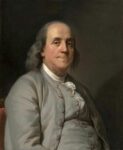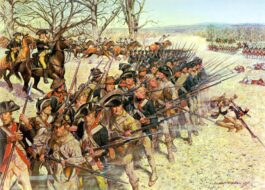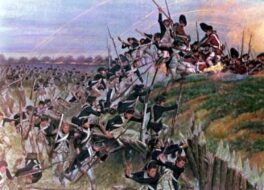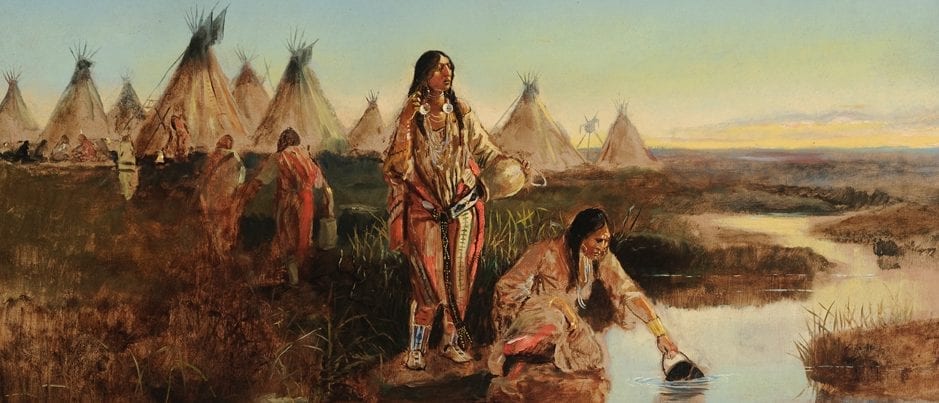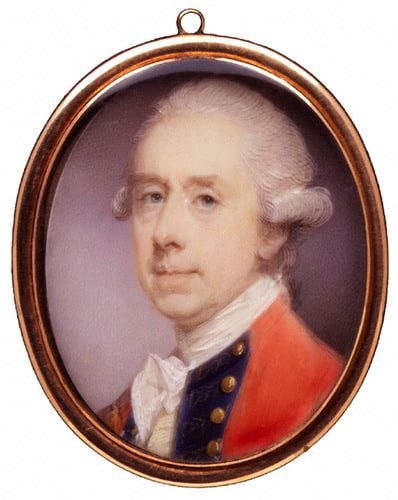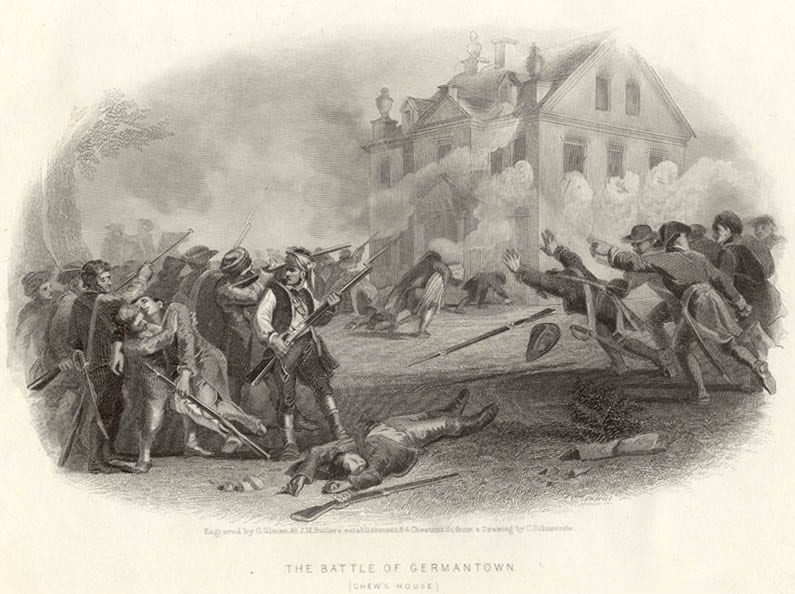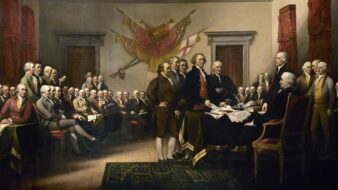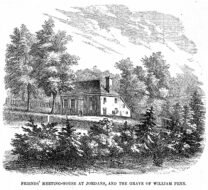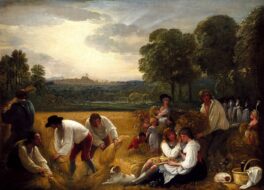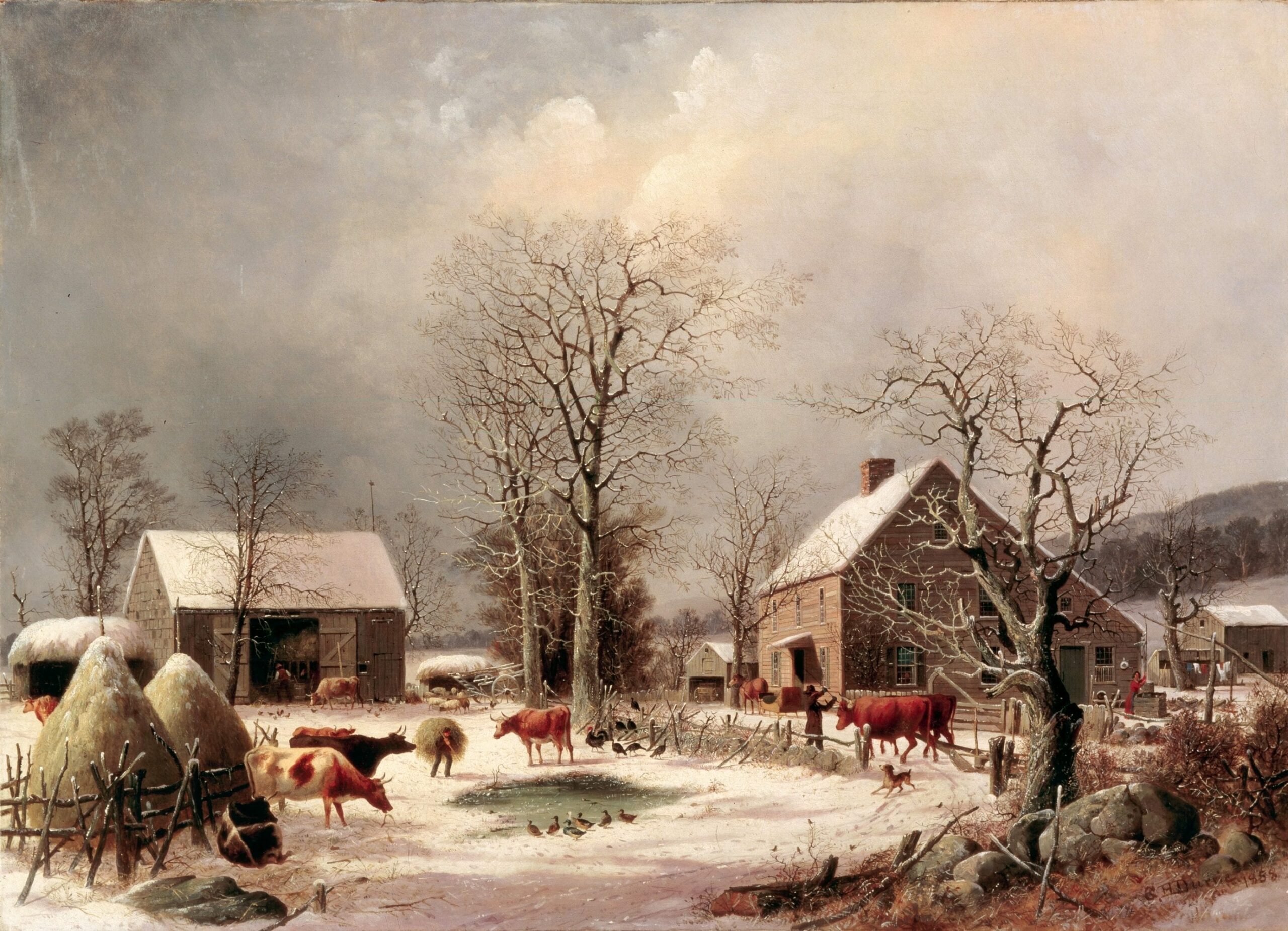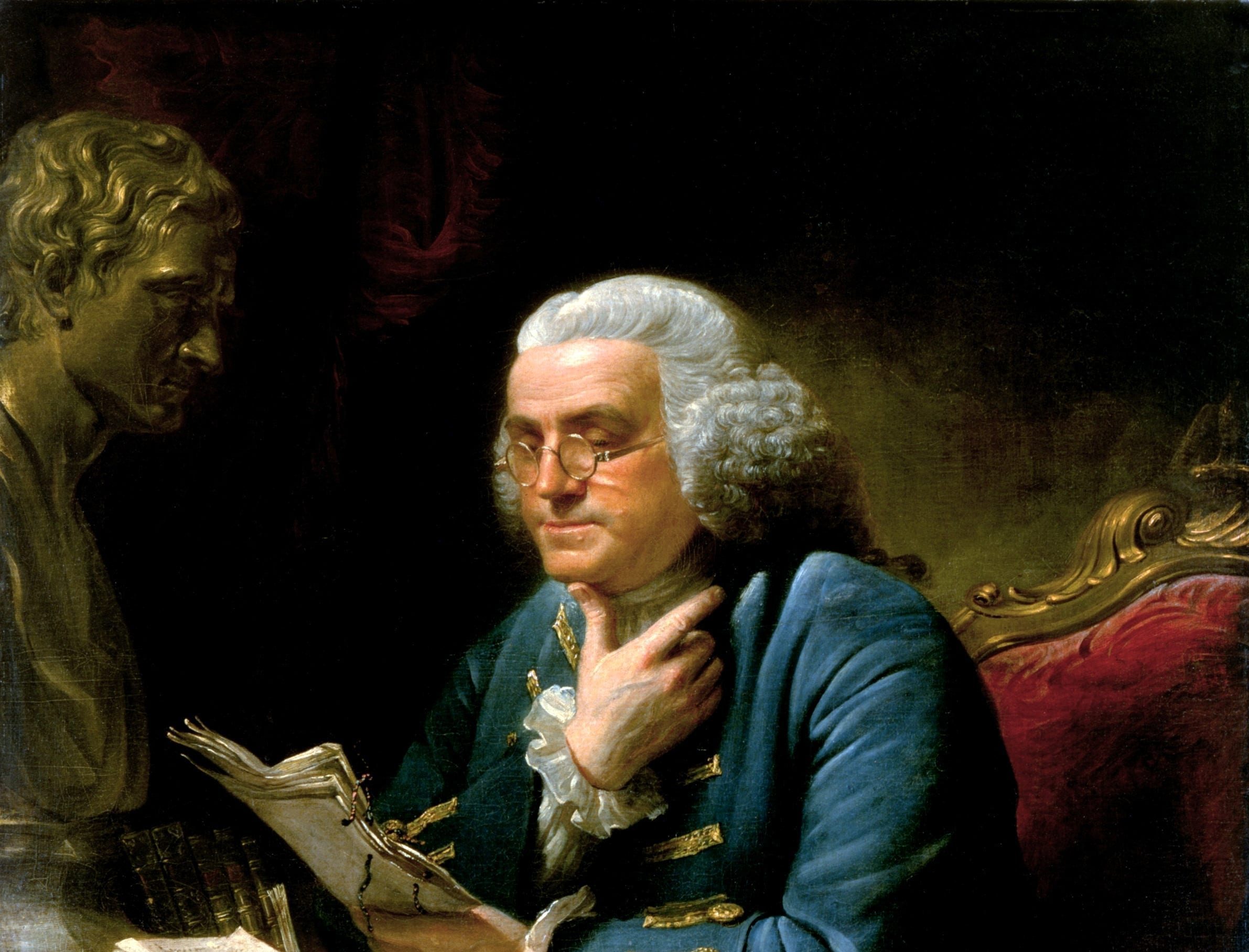


No related resources
Introduction
The Pennsylvania Constitution, prefaced by a Preamble and Declaration of Rights, was framed by a specially elected convention that met from mid-July to the end of September 1776. Pennsylvania followed the Virginia model of declaring a bill of rights prior to articulating the kind of republican government that will be established.
Although the Pennsylvania document was not submitted to the people for ratification, it expresses the radical populist dimension of the conversation over what frame of government would best secure the rights of the people: Pennsylvania was the only state to choose a unicameral rather than a bicameral legislature. Although the legislature was very powerful, the constitution calls for an “open” assembly with policymaking taking place under the full scrutiny of an informed electorate. In section forty-seven (omitted below), the Pennsylvania Constitution provided for an elected Council of Censors to provide periodic review of the operation of the laws and institutions “in order that the freedom of the commonwealth may be preserved inviolate for ever.” This model was subsequently praised by Thomas Jefferson in his Notes on the State of Virginia and criticized by James Madison in The Federalist, numbers 47–51.
John Adams’s 1779 judgment that the Pennsylvania Bill of Rights “is taken almost verbatim from that of Virginia” is correct as far as it concerns the common law tradition. Nevertheless, all sixteen rights enunciated in the Bill of Rights deserve to be reproduced in their entirety in order to appreciate the remarkable uniformity and subtle differences among the states. It is particularly important to note that Pennsylvania repeats the claim that “a firm adherence to justice, moderation, temperance, industry, and frugality are absolutely necessary to preserve the blessings of liberty,” and that only Christians are eligible to hold office. Also noteworthy are the sections dealing with searches and seizures, freedom of speech, the right to bear arms, “the natural inherent right to emigrate,” and the right to assemble.
For organizational purposes, we have divided the text into two parts. Part 1 contains a preamble. Part 2 lists sixteen “rights.” The Roman numerals are in the original text. A Part 3 would have reproduced the forty-seven sections of the plan of government in the Constitution. The plan is omitted.
Source: The Essential Bill of Rights, ed. Gordon Lloyd and Margie Lloyd, (Lanham, MD: University Press of America,1998), 202–215. We have followed F. N. Thorpe, The Federal and State Constitutions (Washington, DC: Washington: Government Printing Office, 1909), vol. 5: 3081-3092; https://goo.gl/gMQuJj. We have followed the spelling, abbreviations, and punctuation found in Thorpe’s version.
[Part 1: Preamble]
WHEREAS all government ought to be instituted and supported for the security and protection of the community as such, and to enable the individuals who compose it to enjoy their natural rights, and the other blessings which the Author of existence has bestowed upon man; and whenever these great ends of government are not obtained, the people have a right, by common consent to change it, and take such measures as to them may appear necessary to promote their safety and happiness. AND WHEREAS the inhabitants of this commonwealth have in consideration of protection only, heretofore acknowledged allegiance to the king of Great Britain; and the said king has not only withdrawn that protection, but commenced, and still continues to carry on, with unabated vengeance, a most cruel and unjust war against them, employing therein, not only the troops of Great Britain, but foreign mercenaries, savages and slaves, for the avowed purpose of reducing them to a total and abject submission to the despotic domination of the British parliament, with many other acts of tyranny, (more fully set forth in the declaration of Congress)[1] whereby all allegiance and fealty to the said king and his successors, are dissolved and at an end, and all power and authority derived from him ceased in these colonies. AND WHEREAS it is absolutely necessary for the welfare and safety of the inhabitants of said colonies, that they be henceforth free and independent States, and that just, permanent, and proper forms of government exist in every part of them, derived from and founded on the authority of the people only, agreeable to the directions of the honorable American Congress. We, the representatives of the freemen of Pennsylvania, in general convention met, for the express purpose of framing such a government, confessing the goodness of the great Governor of the universe (who alone knows to what degree of earthly happiness mankind may attain, by perfecting the arts of government) in permitting the people of this State, by common consent, and without violence, deliberately to form for themselves such just rules as they shall think best, for governing their future society; and being fully convinced, that it is our indispensable duty to establish such original principles of government, as will best promote the general happiness of the people of this State, and their posterity, and provide for future improvements, without partiality for, or prejudice against any particular class, sect, or denomination of men whatever, do, by virtue of the authority vested in us by our constituents, ordain, declare, and establish, the following Declaration of Rights and Frame of Government, to be the CONSTITUTION of this commonwealth, and to remain in force therein for ever, unaltered, except in such articles as shall hereafter on experience be found to require improvement, and which shall by the same authority of the people, fairly delegated as this frame of government directs, be amended or improved for the more effectual obtaining and securing the great end and design of all government, herein before mentioned.
[Part 2: Bill of Rights]
A Declaration of the Rights of the Inhabitants of the Commonwealth, or State of Pennsylvania
I. That all men are born equally free and independent, and have certain natural, inherent and inalienable rights, amongst which are, the enjoying and defending life and liberty, acquiring, possessing and protecting property, and pursuing and obtaining happiness and safety.
II. That all men have a natural and unalienable right to worship Almighty God according to the dictates of their own consciences and understanding: And that no man ought or of right can be compelled to attend any religious worship, or erect or support any place of worship, or maintain any ministry, contrary to, or against, his own free will and consent: Nor can any man, who acknowledges the being of a God, be justly deprived or abridged of any civil right as a citizen, on account of his religious sentiments or peculiar mode of religious worship: And that no authority can or ought to be vested in, or assumed by any power whatever, that shall in any case interfere with, or in any manner control, the right of conscience in the free exercise of religious worship.
III. That the people of this state have the sole, exclusive and inherent right of governing and regulating the internal police of the same.
IV. That all power being originally inherent in, and consequently derived from, the people; therefore all officers of government, whether legislative or executive, are their trustees and servants, and at all time accountable to them.
V. That government is, or ought to be, instituted for the common benefit, protection and security of the people, nation or community; and not for the particular emolument or advantage of any single man, family, or set of men, who are a part only of that community; And that the community hath an indubitable, unalienable and indefeasible right to reform, alter, or abolish government in such manner as shall be by that community judged most conducive to the public weal.
VI. That those who are employed in the legislative and executive business of the state, may be restrained from oppression, the people have a right, at such periods as they may think proper, to reduce their public officers to a private station, and supply the vacancies by certain and regular elections.
VII. That all elections ought to be free; and that all free men having a sufficient evident common interest with, and attachment to the community, have a right to elect officers, or to be elected into office.
VIII. That every member of society hath a right to be protected in the enjoyment of life, liberty and property, and therefore is bound to contribute his proportion towards the expense of that protection, and yield his personal service when necessary, or an equivalent thereto: But no part of a man’s property can be justly taken from him, or applied to public uses, without his own consent, or that of his legal representatives: Nor can any man who is conscientiously scrupulous of bearing arms, be justly compelled thereto, if he will pay such equivalent, nor are the people bound by any laws, but such as they have in like manner assented to, for their common good.
IX. That in all prosecutions for criminal offences, a man hath a right to be heard by himself and his council, to demand the cause and nature of his accusation, to be confronted with the witnesses, to call for evidence in his favor, and a speedy public trial, by an impartial jury of the country, without the unanimous consent of which jury he cannot be found guilty; nor can he be compelled to give evidence against himself; nor can any man be justly deprived of his liberty except by the laws of the land, or the judgment of his peers.
X. That the people have a right to hold themselves, their houses, papers, and possessions free from search and seizure, and therefore warrants without oaths or affirmations first made, affording a sufficient foundation for them, and whereby any officer or messenger may be commanded or required to search suspected places, or to seize any person or persons, his or their property, not particularly described, are contrary to that right, and ought not to be granted.
XI. That in controversies respecting property, and in suits between man and man, the parties have a right to trial by jury, which ought to be held sacred.
XII. That the people have a right to freedom of speech, and of writing, and publishing their sentiments; therefore the freedom of the press ought not to be restrained.
XIII. That the people have a right to bear arms for the defense of themselves and the state; and as standing armies in the time of peace are dangerous to liberty, they ought not to be kept up; And that the military should be kept under strict subordination to, and governed by, the civil power.
XIV. That a frequent recurrence to fundamental principles, and a firm adherence to justice, moderation, temperance, industry, and frugality are absolutely necessary to preserve the blessings of liberty, and keep a government free: The people ought therefore to pay particular attention to these points in the choice of officers and representatives, and have a right to exact a due and constant regard to them, from their legislatures and magistrates, in the making and executing such laws as are necessary for the good government of the state.
XV. That all men have a natural inherent right to emigrate from one state to another that will receive them, or to form a new state in vacant countries, or in such countries as they can purchase, whenever they think that thereby they may promote their own happiness.
XVI. That the people have a right to assemble together, to consult for their common good, to instruct their representatives, and to apply to the legislature for redress of grievances, by address, petition, or remonstrance.
- 1. Declaration of Independence
Pennsylvania Constitution
September 28, 1776
Conversation-based seminars for collegial PD, one-day and multi-day seminars, graduate credit seminars (MA degree), online and in-person.
